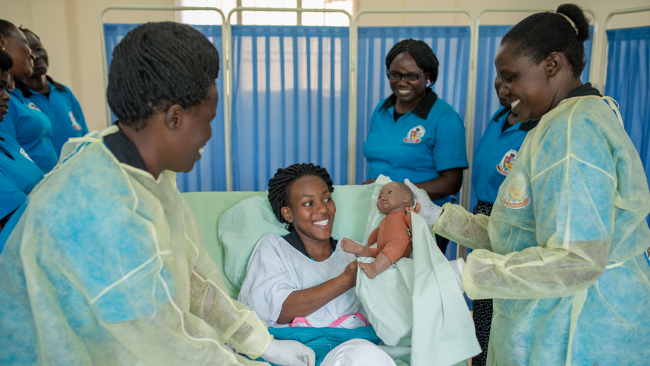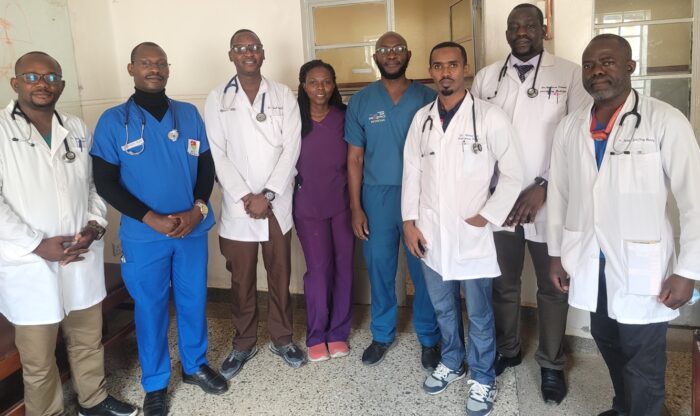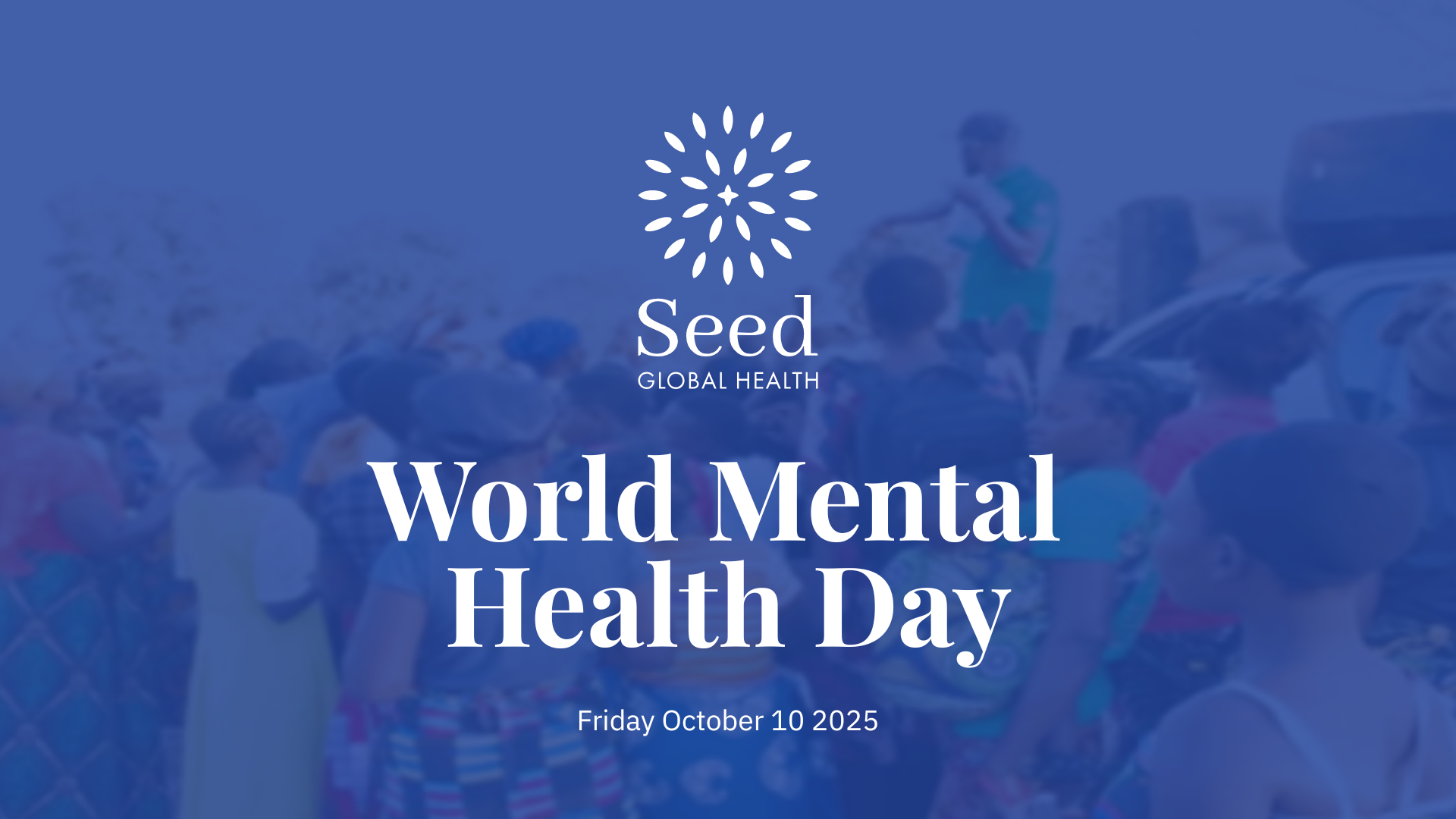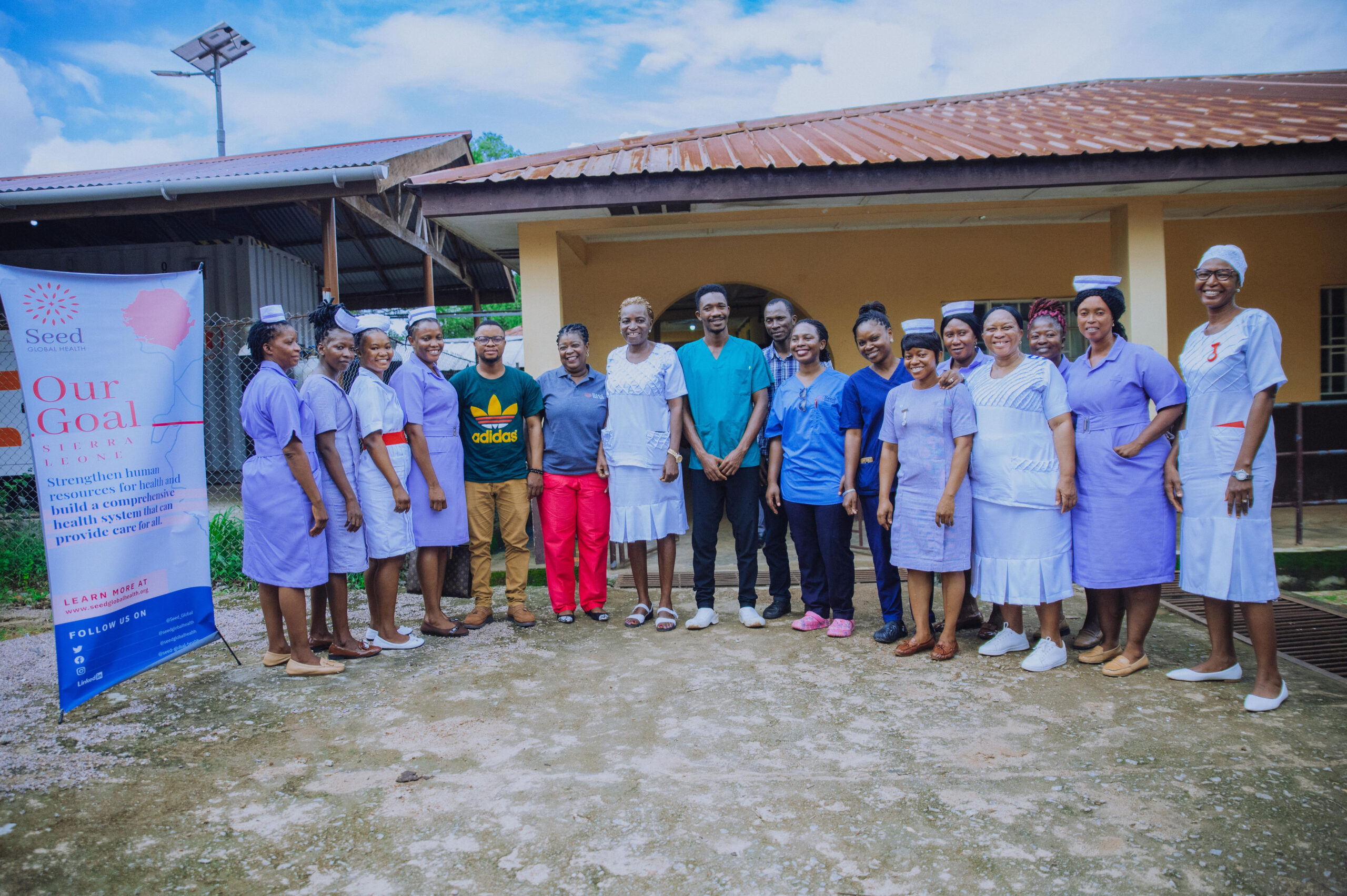
Milestone for newborn care in Uganda as neonatology fellowship secures accreditation and resumes in 2025
The Neonatology Fellowship at Makerere University has been accredited, opening doors for more doctors to sub-specialize locally in neonatal care. This program, the first of its kind in Uganda, was established in 2019 by the Department of Paediatrics and Child Health at the Makerere University School of Medicine.
At the launch of the fellowship, ten pioneer students, five paediatric nurses and five paediatricians enrolled. The program was set up as a timely intervention to address Uganda’s persistent challenges in neonatal care, which have hindered progress toward achieving key child health targets. A media report cited Ministry of Health statistics indicated that of the country’s 19,000 neonatal deaths annually, 25% were preventable with the right expertise and resources.
However, in August 2022, the fellowship hit a roadblock due to a lack of accreditation from the Uganda Medical and Dental Practitioners Council (UMDPC), the regulatory body responsible for overseeing medical and dental practice in Uganda.
To address this, Makerere sought support from Seed Global Health (Seed) alongside Ministry of Health (MoH) and in partnership with the ELMA Foundation to secure accreditation and further training for this cadre. This effort aimed to ensure the fellowship’s continuation to achieve the goal of building a cadre of specialized neonatologists to save newborn lives in Uganda.
Dr. Andrew Twinamastiko, Seed Uganda’s program manager, explained that securing of the accreditation of the neonatology fellowship was a collaborative effort.
“An independent consultant was appointed by UMDPC to evaluate the fellowship, particularly its practical training components. The consultant reviewed the neonatal units hosting fellows during their clinical rotations, including Mulago Specialized Women and Neonatal Hospital, Kawempe National Referral Hospital, and St. Francis Hospital Nsambya,” he noted.
Reflecting on the accreditation, Dr. Richard Mugahi, Commissioner for Reproductive and Child Health at the Ministry of Health, said that while Uganda has made significant progress in maternal health, new-born health remains a major challenge.
“For the past two decades we have seen newborns mortality stagnate at 27 new-born deaths per 1,000 live births which is far too high,” he said. Although there has been a slight decline to 22 newborn deaths in 2022 (UDHS 2022), this is not enough. “According to the Sustainable Development Goals (SDGs), we are supposed to reduce this to 12 deaths per 1,000 live births.”
Dr. Mugahi emphasized that the shortage of skilled healthcare workers, particularly experts in newborn care, has been one of the country’s biggest challenges. “We lack the expertise to provide newborn care at all levels,” he explained. A recent nationwide survey that the Daily Monitor published on November 30, confirmed Dr. Mugahi’s concerns highlighting the country’s limited resources and manpower for managing premature babies.
The neonatal fellowship program is a step in the right direction to address these capacity gaps. It will help us improve child health indicators and move closer to achieving the SDG targets, he added.
“Our plan is to upgrade all district-level facilities to level two new-born care and establish level three neonatal intensive care units (NICUs) at all regional referral hospitals,” Dr. Mugahi added. “To achieve this, we need a skilled and specialized workforce, and the neonatal fellowship program will help us to address this.”

Dr. Victor Musiime the head of the Department of Paediatrics and Child Health at Makerere University, stated that with the accreditation secured, the fellowship is set to resume in early 2025. The pioneer paediatricians will complete their rotations, and a new cohort will be enrolled. With Seed’s support, the five paediatrician fellows will gain exposure to specialized neonatal care through rotations at top regional hospitals such as Aga Khan Hospital in Nairobi, Kenya, and Muhimbili National Hospital in Tanzania.
For pioneer fellows like Dr. Anita Tumwebaze Muhumuza, the program presented an opportunity to strengthen her skills and career as a paediatrician at Mulago Specialized Women and Neonatal Hospital.
“I have been practicing medicine for 17 years, 11 of which I have spent in the neonatal unit. I was excited to learn and improve my skills in supporting newborn care,” she shared enthusiastically.
Dr. Tumwebaze reflected on the pause in the fellowship, describing it as demoralizing but noting that the skills she had gained, such as intubation, giving surfactant, umbilical catheter insertion, blood gas analysis, and managing mechanical ventilation had boosted her confidence and enhanced her ability to teach peers and residents.
“This fellowship has the potential to revolutionize new-born care in Uganda and beyond if we can create a critical mass of new-born specialists,” she said passionately.
The implementation of the neonatology fellowship in collaboration with Makerere University School of Medicine, partner hospitals, and the Ministry of Health, embodies Seed’s mission of building a highly skilled health workforce capable of addressing the complex needs of communities and saving lives.

